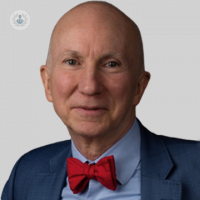Understanding psychobiology: A practical guide
Written by:In his latest online article, Dr George Fieldman gives us his insights into psychobiology. He explains what psychobiology is, how its used to treat patients, the difference between psychology and psychobiology, how the psychobiology approach benefits patients and if it’s a successful approach.

What is psychobiology?
Psychobiology consists of two main areas: psychophysiology and evolutionary psychology. Psychophysiology focuses on understanding the physical and functional processes behind our thoughts and emotions, examining how different parts of the brain contribute to these functions.
Evolutionary psychology, on the other hand, explores the evolutionary factors that influenced our common cognitive structures and behaviours as a species. For example, our everyday experience of hunger stems from our ancestral need to search for and consume food for survival. In the past, when food was scarce, it made sense for our ancestors to eat whenever they could find calories to avoid starvation.
However, our environment has changed drastically. In the modern West, food is abundant, leading to a mismatch between our evolved instincts and our current reality. This mismatch contributes to a significant number of people, over a quarter in places like Britain, being overweight or obese.
This situation highlights the challenge of adapting evolved traits to a very different environment. The consequences, such as the high prevalence of obesity, show how our evolutionary past can clash with the conditions of today's world.
How is psychobiology used in treating patients?
For someone dealing with weight issues, it's important to convey that it's not a personal failure. Explaining the evolutionary origins of such challenges helps normalise the experience, making it clear that it's a common aspect of human functioning. This perspective removes blame and reassures individuals that it's not their fault. Recognising the universality of these struggles encourages compassion and understanding, emphasising that these issues are part of the shared human experience.
What's the difference between psychology and psychobiology?
Psychology is both an academic and clinical field, encompassing various academic disciplines and applied clinical practices like psychotherapy. Psychobiology, a subdivision of psychology, focuses on examining the evolutionary and physiological mechanisms that underlie our functioning.
How does the psychobiology approach benefit patients?
Psychobiology helps people understand that some psychological difficulties they face aren't solely their fault. There are biological and social factors at play. By grasping the biological causes, individuals can feel more at ease, reducing self-blame. We are shaped by our genes and environments, and while we should take personal responsibility, it's crucial to recognise that many challenges are not entirely our fault.
Is it a successful approach. What kind of examples can you give?
If we're helping someone with social anxiety, which is quite common, we can connect it to our evolutionary past. Feeling anxious around strangers was once normal due to the frequent threat of attacks in ancestral times. Even though such threats are rare now, our biological makeup still carries this fear. It's not their fault; it's how we were designed to cope.
In today's safer environment, the anxiety may seem excessive, especially among young people, and it has become even more prevalent post-lockdown. Limited exposure to social interaction during lockdown likely contributes to increased social anxiety. Placing these experiences in an evolutionary context can be helpful for people to understand why they feel this way.
Dr George Fieldman is an esteemed chartered psychologist. You can schedule an appointment with Dr Fieldman on his Top Doctors profile.


